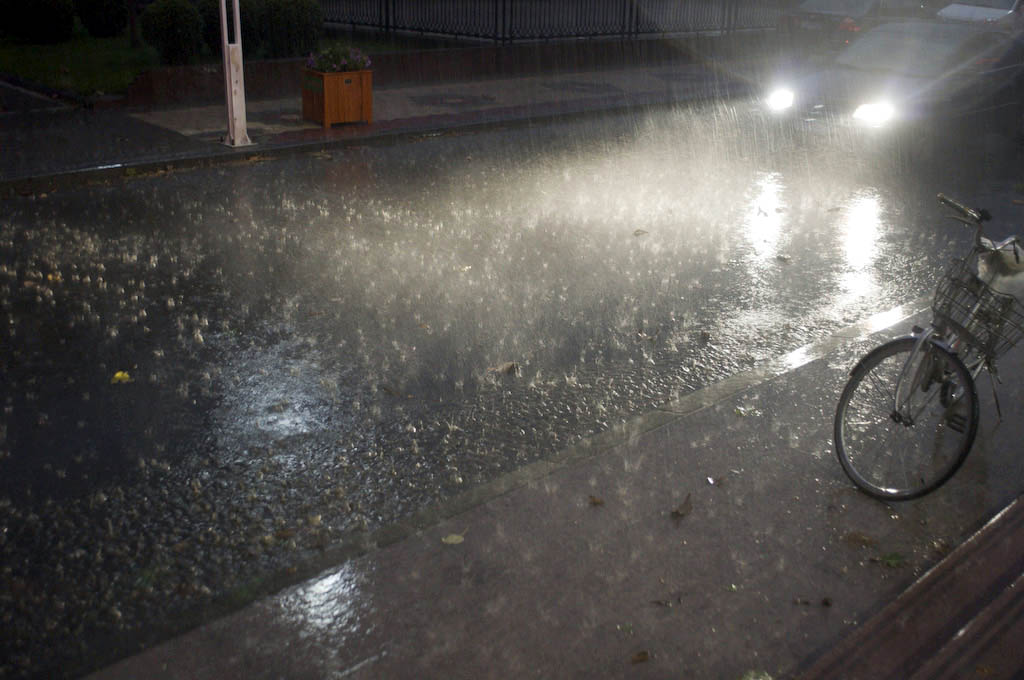Last day in Handan and I’m part of a crowd watching five guys dressed in light green uniforms use grappling hooks and a limp lasso to gently hook a head-down floater out of the canal. I can’t help wondering how long it takes for a body to decompose and somewhat irrationally whether we’re going to witness a body part tear away from the torso.
It’ll be no surprise to you that the crowd drew me here, and tapping on the motorbike driver’s shoulder we slowed to a halt, dismounted and nosed around. About a dozen police officers are positioned behind the police tape keeping the crowd at bay, and a video camera which could belong to the police (a la G8 protests) or simply a local journalist doing his job scans our side of the canal bank, lingering on yours truly. The cameraman talks with a blue uniform and that uniform talks to another blue uniform until in colour co-ordinated harmony they circumnavigate the crowd and head in my direction.
There’s a tendency of citizens of any culture to want to show visitors to their fair land the best of what’s on offer. It works at the individual level when we’re being shown around the homes of our study participants, in the discussions with the local team hired to help us access and understand what it is we are there to study and the level of (self) criticism in the conversations that follow and, in this instance – with the police trying to keep a lid on this floater of an incident.
The experience of being detained by the authorities varies from country to countryy. Today, fighting in my corner I’ve got a valid business visa, an innocent enough reason for being here and a world weary yet smiling detective who looks like he’s doing things by the book. The uncertainty staring at me from across the ring is that I’m lugging a seriousish looking camera and have been taking photos of the scene, which may or may not be a crime scene; I’m not carrying a mandatory photo ID which is back in the hotel; I have a Chinese vocabulary of about a dozen words – half of which are useful only if I’m ordering drinks in a bar. My motorbike driver, despite my our proximate intimacy when he leans into the corners – only met me a few hours ago and speaks no English. I could of course phone a Chinese speaking friend, if my mobile wasn’t in the hotel charging. The rest of the research team have left already, and my Beijing bound train leaves in a few hours. Journalists need to be registered and right now I need to prove I’m no journalist. In the mean time, the photos are reviewed by one of the officers and deleted from the camera.
When we enter a participant’s home the question is not whether they’ve done anything to prepare themselves and their private space to ‘public presentation’, but how?. And ultimately if we’re able to earn enough trust with the family or indeed, with our locally hired assistants then we are able to shift the conversation to why – understanding what is missing from the space, what we didn’t see, and ultimately what motivated them to keep it out of view? What you don’t say speaks volumes whether you’re acting as an individual or as a representative of your country. In a clear cut world deleting photos from a foreigner’s camera is censorship, but for all our rhetoric nothing is ever that clear cut – neither here or in your country.
A gentle two-handed raising of the glass to Niu Lei, Zhao Yujing, Liu Guofu, Hu Meirong and Zhang Jing in Handan and Ajit, Skikar, Vaibhar & Shweta in Ahmedabad for guiding us through the collision of people and places in such good spirits – much appreciated. MM, ZH and LX ta for the setup.
